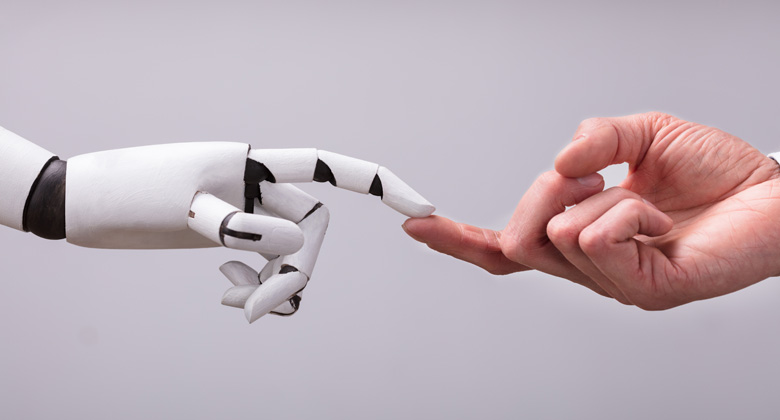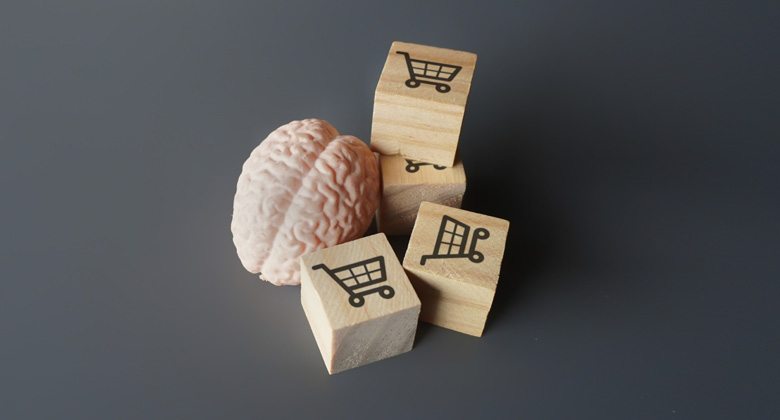Engaging Luxury Lifestyle Marketing: Trends, Winning Strategies, Example and More
Luxury lifestyle marketing, a world where opulence meets sophistication, is a unique facet of branding that transcends traditional advertising. It’s not just about selling a product; it’s about selling a dream, an aspiration. This exclusive sector is thriving, with the global luxury goods market projected to reach $392.40 billion by 2030.
What is Luxury Lifestyle Marketing?
Luxury lifestyle marketing is the art of crafting and promoting a lifestyle that embodies the ideals and aesthetics of a luxury brand.
This form of marketing goes beyond showcasing products; it’s about creating an entire world around them – a world that calls on your target audience to not just buy but to be a part of something exclusive and desirable.
It’s a narrative that weaves together your brand’s heritage, craftsmanship, and the unique experiences you offer.
For such high-level marketing like this, which focuses on promoting not just products but an entire way of life, working with a luxury branding agency is a must.
Emerging Trends in Luxury Lifestyle Marketing
Staying up-to-date with emerging luxury lifestyle marketing trends is crucial. Here’s an in-depth look at what’s shaping the future of this exclusive sector:
Experiential Luxury
Luxury brands are increasingly focusing on providing experiential value, offering unique and memorable experiences that go beyond the physical products. From exclusive events to personalised experiences, brands are creating opportunities for direct engagement with their audience, enhancing the perceived value of the luxury lifestyle.
Digital Transformation
With the surge in digital consumption, luxury brands are enhancing their online presence, offering immersive digital experiences that mirror their physical opulence. Utilising platforms like Instagram and Pinterest, luxury brands are leveraging visual storytelling to create aspirational content that resonates with their audience.
Sustainable Luxury
Sustainability is becoming a significant part of the luxury narrative, with brands highlighting their commitment to environmentally friendly practices and ethical sourcing. Consumers are increasingly aware and concerned about the origins and manufacturing of products, prompting luxury brands to be more transparent about their supply chains.
Personalisation and Customisation
Luxury brands are offering personalised services and products, allowing customers to be part of the creation process, therefore enhancing the sense of exclusivity. They leverage customer data to tailor marketing efforts and product offerings, ensuring a more personalised brand experience.
Collaborations and Partnerships
Collaborations with artists, designers, and other brands are creating buzz and offering a fresh perspective, attracting a broader audience to the luxury market. Limited edition products resulting from these collaborations are creating a sense of urgency and exclusivity, driving interest and sales.
Technology Integration
AR is being used to offer virtual try-ons and immersive product previews, enhancing the online shopping experience. AI and Machine Learning are being implemented for personalised recommendations, chatbots for enhanced customer service, and predictive analytics for better market understanding.
Effective Luxury Lifestyle Marketing Strategies
To thrive in the high-end market, luxury brands must deploy strategies that resonate with their exclusive audience. Here’s a deep dive into effective luxury lifestyle marketing strategies:
1. Building a Strong Brand Story
Craft compelling brand stories that embody luxury, heritage, and exclusivity. These narratives often highlight a brand’s history, craftsmanship, and the luxury lifestyle it represents.
2. Leveraging Digital Platforms
Create luxurious online experiences that mirror the quality and prestige of in-store interactions. This includes visually rich websites, exclusive online content, and high-quality e-commerce platforms.
Partner with luxury influencers and celebrities to reach a wider audience and add credibility to the brand.
3. Exclusivity and Scarcity Marketing
Focus on brand exclusivity tactics. Offer limited-edition products to create a sense of urgency and exclusivity. Create exclusive clubs or VIP experiences for top-tier customers, enhancing the feeling of belonging to an elite group.
4. Personalisation and Customisation
Offer customisation options that allow customers to feel they are receiving a unique product tailored to their preferences.
Utilise customer data to provide personalised marketing communications and shopping experiences.
5. Engaging Through Experiences
Host exclusive events, pop-up shops, and experiential marketing campaigns that allow customers to experience the brand in a unique and immersive way.
6. Sustainability and Social Responsibility
Emphasise sustainable practices in production and packaging, aligning with the growing consumer demand for environmentally conscious products.
Align with charitable causes to build a positive brand image and demonstrate corporate social responsibility.
Examples of Successful Luxury Lifestyle Marketing
It’s always a wise idea to learn from the best, right? So, here are real-world luxury lifestyle marketing examples to give you inspiration.
Chanel’s Heritage Storytelling
Chanel consistently highlights its rich heritage and the legacy of Coco Chanel in its marketing, reinforcing the brand’s timeless elegance and history of innovation.
Rolex’s Ambassador Strategy
Rolex’s use of brand ambassadors like Roger Federer and Serena Williams in their marketing campaigns has reinforced its image as a symbol of success and prestige.
Burberry’s Digital Innovation
Burberry’s innovative use of social media platforms, including Instagram and Twitter, has helped the brand reach a younger, digitally-savvy audience without losing its luxury appeal.
Tesla’s Sustainable Luxury
Tesla has positioned itself as a leader in sustainable luxury, appealing to affluent consumers who are environmentally conscious.
Louis Vuitton’s Exclusive Events
Louis Vuitton has successfully used pop-up stores and exclusive events in key cities around the world to create buzz and provide an immersive brand experience.
Measuring and Analysing Luxury Marketing Effectiveness
Key Metrics for Luxury Lifestyle Brands
For luxury brands, measuring marketing effectiveness involves focusing on metrics that reflect the brand’s prestige and customer loyalty. These include:
- Customer Lifetime Value(CLV) – Assess the long-term value of customers to understand the effectiveness of retaining high-value clients.
- Brand Sentiment Analysis – Use social listening tools to gauge public perception and emotional engagement with the brand.
- Engagement Rates – Analyse engagement metrics on social media and digital platforms, such as likes, shares, comments, and click-through rates.
- Return on Investment(ROI) – Calculate the ROI of marketing campaigns to determine their financial effectiveness.
Data Analytics and Performance Evaluation
- Customer Segmentation Analysis – Utilise data analytics to segment customers based on their purchasing habits, preferences, and luxury consumption patterns.
- Conversion Tracking – Monitoring conversion rates from various marketing channels to evaluate their effectiveness in driving sales.
- Market Trend Analysis – Keeping tabs on market trends and customer feedback to align marketing strategies with evolving consumer preferences.
By focusing on these metrics and analyses, you can refine your strategies for maximum impact and sustained growth.
The Future of Luxury Lifestyle Marketing
As we look ahead, the luxury market is poised for transformative shifts, which we expect to come about via these luxury lifestyle marketing future trends:
Increased emphasis on digital experiences
With the growing importance of online presence, luxury brands will further invest in creating immersive digital experiences.
Personalisation at scale
Advancements in technology will allow for even more tailored customer experiences, both online and offline.
Sustainable and ethical marketing
As consumer awareness grows, luxury brands will place more emphasis on sustainable practices and ethical sourcing in their marketing narratives.
Integration of advanced technologies
Technologies like AR, VR, and AI will become more prevalent in providing unique customer experiences and personalisation.
Key Takeaways and Recommendations
For luxury lifestyle brands, the key to successful marketing lies in:
- Maintaining brand prestige – Continuously reinforce your heritage and exclusivity in every marketing effort.
- Embracing digital transformation – Invest in digital platforms and technologies to create engaging and memorable customer experiences.
- Focusing on personalisation and customer experience – Tailor experiences to individual customers to enhance loyalty and brand advocacy.
- Adapting to market changes – Stay agile and responsive to emerging trends, particularly in sustainability and digital engagement.
By adhering to these principles, you can not only navigate the current landscape but also set the stage for future success in the ever-evolving world of luxury lifestyle marketing.
Subscribe To Us
Contributors
Categories
Subscribe To Us
Contributors
Categories

This website uses cookies so that we can provide you with the best user experience possible. Cookie information is stored in your browser and performs functions such as recognising you when you return to our website and helping our team to understand which sections of the website you find most interesting and useful. Third party cookies such as Google Analytics is also used on this site to provide analytics in order to better understand the user engagement on our site.
You can adjust all of your cookie settings by navigating the tabs on the left hand side.
Strictly Necessary Cookie should be enabled at all times so that we can save your preferences for cookie settings.
If you disable this cookie, we will not be able to save your preferences. This means that every time you visit this website you will need to enable or disable cookies again.







0.Comments